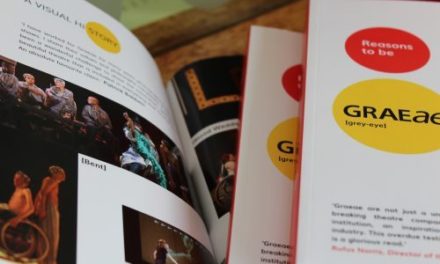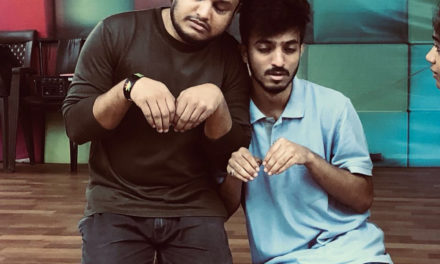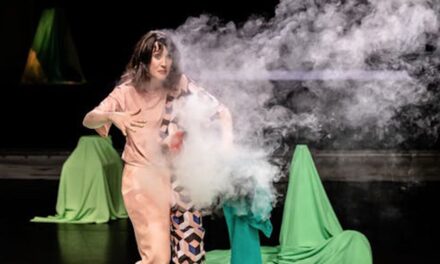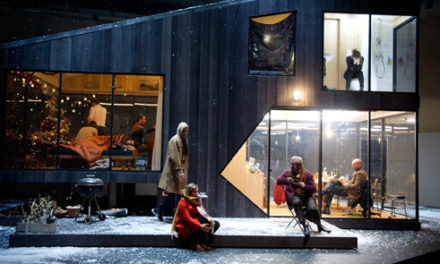Presented at the Smock Alley Theatre for the last edition of the Dublin Fringe Festival, Free EU Roaming is a very interesting performance developed and devised by The Rule of Three, a new collective in performing arts lead by–in alphabetical order–Sinéad Brady, Caroline Galvis, and Katie O’Byrne.
Difficult to define the play. Officially–as stated in the festival website–is a physical theatre play, but the definition is reductive due to a dramaturgy that has also in the words one of is an essential element. The three performers–authors, who come from three different countries (UK, Germany, and Ireland), realized a text and a show charged of their personal experience and the experiences of their own realities, together with the reality of their Country of adoption: Spain, or better said Catalonia and Barcelona, where they met and trained.
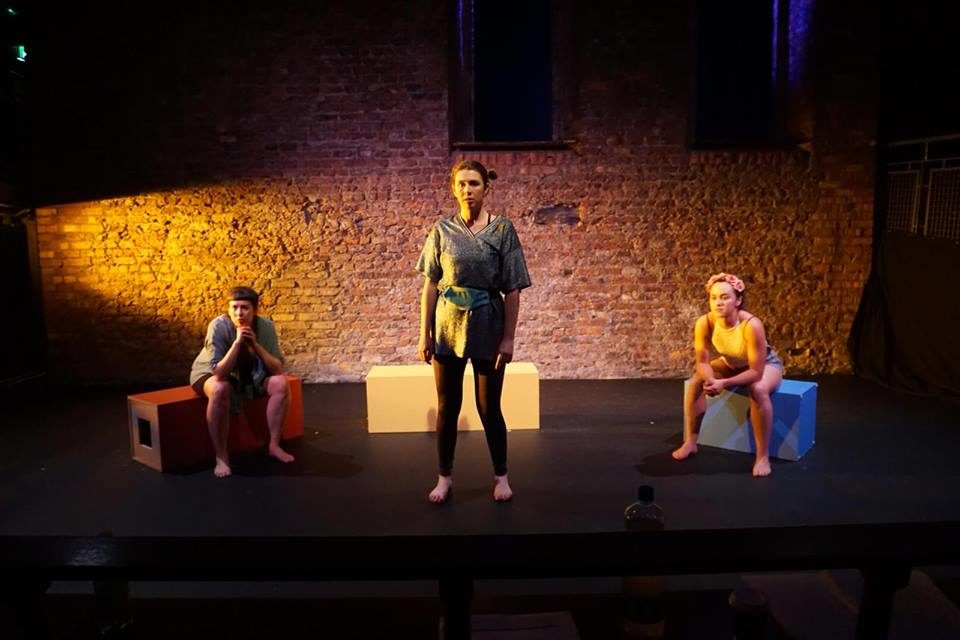
The plot in a way is simple: an Irishwoman, an Englishwoman, and a German woman walk into a hostel bar. A hostel bar in Barcelona. They do not know each other but they are there for the same reason: go to a big music festival to see the Daft Punk. Suddenly, a fight for Catalonian independence rages on the streets outside.
It is clear the reference to the 1st of October 2017 with the referendum–not accepted by Madrid and by almost all the international governments–for the independence of Catalonia. But it is just a beginning, a way for the characters to discuss their own personal realities and define their own identity in relation to the other: what does it mean being a European citizen after Catalan referendum, after Brexit and so on? Is still there a sense of community?
In this way, the title has a double meaning: Free EU Roaming as the roaming and the signal that start to disappear after the declaration of independence; Free EU Roaming as a metaphor of a Europe without borders.
In the performance, it is possible music, movement, monologues, dialogues, strong, and humoristic parts mixed together. The sensation is that The Rule of Three has a great amount of material and different paths to take with this show in order to find a definitive identity. The result is interesting, the political commitment is high, the potential is great.
This post was written by the author in their personal capacity.The opinions expressed in this article are the author’s own and do not reflect the view of The Theatre Times, their staff or collaborators.
This post was written by Armando Rotondi.
The views expressed here belong to the author and do not necessarily reflect our views and opinions.


